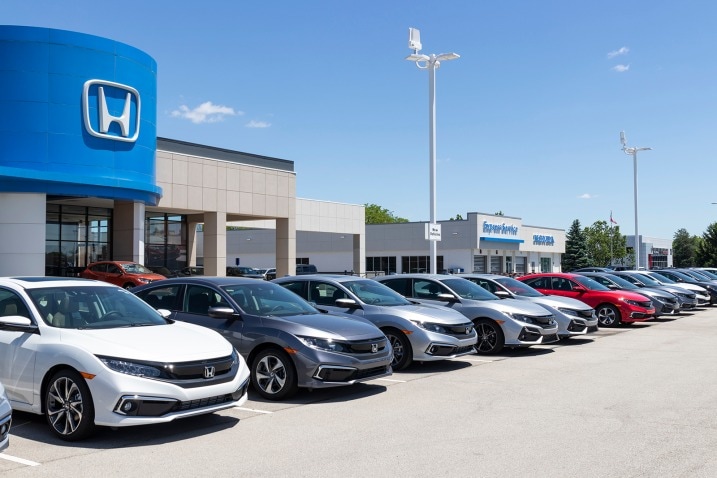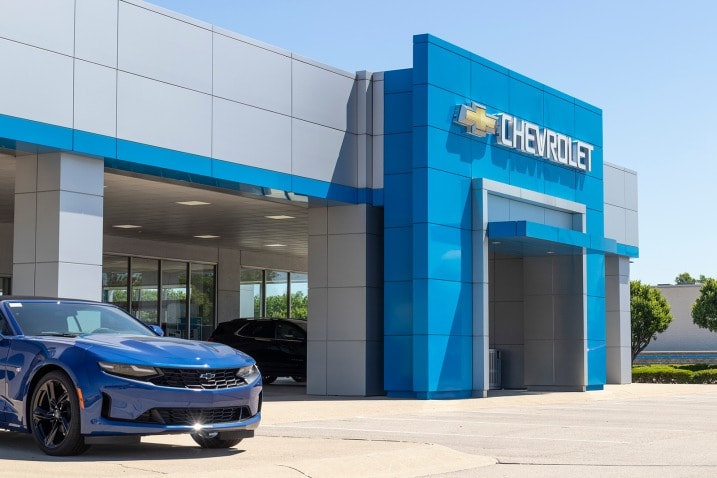How Much Can I Afford?
The first part of buying a car is knowing your limits. What's the most you should spend on your monthly car payment? Schools of thought differ on this question, but the Edmunds view is that your car payment should be no more than 10% of your monthly take-home pay if you're buying used, or 15% if you're buying new.
Not sure what that translates to in a car price? Take a look at our affordability calculator for more information.
You'll also need to factor in the cost of insurance and fuel. Insurance costs vary widely depending on driver age, driving record, vehicle type, insurance provider and extent of coverage, so make sure you get quotes from multiple providers based on all those specifics. Fuel economy figures can be found at the EPA's fueleconomy.gov website. Together these two costs should be no more than 7% of your monthly take-home pay.
How Do I Get a Loan?
When it comes time to apply for a loan, you have a few options: your bank or credit union, the dealership or a third-party lender. Dealerships tend to have better rates, but that's not always the case, so it's worth getting preapproved by other lenders before visiting the dealership to give yourself a basis for comparison. Note that if you're shopping for a used car, the lender may expect you to know what vehicle you plan on buying. Also, make sure you get all your loan applications done within a couple of weeks so there is only one big impact on your credit score.
How Long Should My Loan Be?
More and more people are taking out long car loans to make their monthly payments more manageable, but that's not always the best idea. A longer loan will lower your monthly payment, but you will pay more in finance charges and it will take you longer to gain equity in the vehicle. These days, 72- and 84-month loans are increasingly common, but we recommend 60 months or lower — especially if you're financing a used car.
There are other reasons to keep your loan as short as possible. For example, consider how soon you might get tired of the car. If you go for a 72- or 84-month loan, by the end of it you might be ready to unload your aging ride and jump straight into a new car. But if you choose a 60-month loan, you might enjoy the car for an extra year or two with no car payments. Or go ahead and get rid of it at the five-year mark — the car is fully paid for, and you've saved the equivalent of two years' depreciation versus waiting till the end of a seven-year loan. Check out our article on how long a car loan should be for more information on loan terms.
What About the Down Payment?
In an ideal world, we'd put down 20% on a new car and about 10% on a used car, to offset the initial depreciation. But not everyone can handle that with today's car prices. If you need to make a smaller down payment, our advice is to put down as much as you can without dipping into your emergency savings. If you put down less than 20% on a new car, it may be worth looking into gap insurance. See our detailed analysis of how much a down payment should be to learn more.
Should I Consider Leasing?
If you're into the latest tech and luxury, leasing may be a compelling option. Suppose that a $400 monthly payment is the most you can comfortably afford. If you're buying, that might get you into a mainstream SUV or sedan — but if you're leasing, you can choose from a variety of luxury models. At the end of the day, of course, you don't own the car, but you also get to skip the usual maintenance and repairs, paying only for routine procedures such as changing the oil and tires. There's no objective answer to whether buying or leasing is better, but for those who don't mind always having a car payment, it's easy to see why leasing holds appeal.



 by
by 